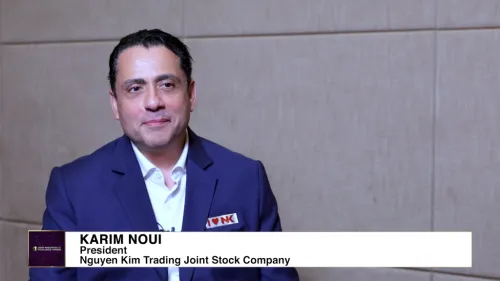
New bill slashes transaction costs for Hong Kong market makers
The government gazetted a bill waiving stamp duty payable on certain transactions relating to dual-counter stock.
Hong Kong's stock market is set to see a boost in liquidity and reduced transaction costs for market makers engaged in dual-counter stock trading. This comes after the government passed a bill that waives the stamp duty on certain transactions related to dual-counter stocks.
The move is expected to encourage more exchange participants to sign up for Hong Kong Exchanges and Clearing Limited's (HKEX) Dual Counter Market Making Programme, leading to a more efficient and liquid market.
Minny Siu, partner at King & Wood Mallesons, said market making activities include providing bid and ask quotes within a specified range of the latest market price in the Renminbi (RMB) counter for matching investors’ orders. Liquidity providing activities, on the other hand, include arbitrage trading, which involves taking advantage of price differences between two markets.
Before the changes to the Stamp Duty Ordinance were proposed, a stamp duty of 0.13% was levied on the value of transactions involving securities listed on the Stock Exchange of Hong Kong Limited. Additionally, the seller of each security had to pay a stamp duty of $5.00 for each instrument of transfer.
According to Pan Tsang, a partner at Robertsons Hong Kong, these stamp duties accounted for a significant portion of the trading costs of securities transactions, comprising over 90% of the total cost. In other words, the stamp duty was a major expense for market participants and reducing or waiving it could significantly reduce transaction costs and promote more trading activity.
With the removal of stamp duty for a sale or purchase of dual-counter stock, Tsang and Siu believe more exchange participants (EPs) will sign up to be market makers under Hong Kong Exchanges and Clearing Limited’s (HKEX) Dual Counter Market Making Programme and engage in market making activities and arbitrage transactions.
When this happens, Siu said the price gap between the Hong Kong Dollar (HKD) counter and RMB counter will be minimised and promote liquidity of the latter.
RMB business hub status
Citing a working group formed by the HKEX, Hong Kong Monetary Authority (HKMA), and Securities and Futures Commission, Siu said RMB counters have “relatively low liquidity,” which resulted in a price difference between HKD and RMB counters of the same stock.
The price difference, in turn, caused a low market appetite for RMB counters generally.
“The stamp duty exemption will reduce the transaction costs of market makers and help increase the liquidity and price-efficiency of RMB securities,” Tsang said.
“It is anticipated that a surge in market appetite and liquidity of the RMB counter will promote the issuance and trading of RMB securities in Hong Kong,” Siu commented. This will foster the city’s position as the “leading offshore RMB business hub.”
“The increase in trading volume [of RMB securities in Hong Kong] will promote the further development of the relevant financial infrastructure in Hong Kong and create synergies with other current RMB-related products, which in turn strengthens Hong Kong’s status as the world’s leading offshore RMB business hub,” Siu said.
Apart from market makers, Tsang said the stamp duty exemption will also benefit Hong Kong listed issuers.
“Under the Dual Counter Model, Hong Kong listed issuers will be able to apply to launch a new RMB counter so that investors can trade eligible RMB-denominated securities under the RMB counter,” Tsang said.
“HKEX and the Mainland authorities are exploring an initiative to expand the Stock Connect to allow Mainland investors to trade RMB-denominated securities through southbound Stock Connect such that listed issuers could potentially tap into additional capital from Mainland investors,” he added.
Siu said the DCMM Programme will support this initiative by the Mainland and Hong Kong.
Impact of RMB internationalisation
Ultimately, the bill will also enhance the internationalisation of RMB, said Verona Ho, partner at Robertsons Hong Kong.
“If the RMB-denominated stock market can gradually flourish, and if foreign investors can purchase RMB-denominated stocks in addition to those from the Mainland, there will be an increase in the number of quality Mainland companies listed in Hong Kong,” Ho explained.
“When the Renminbi stock market in Hong Kong becomes active, these giant mainland stocks can be issued in Hong Kong at the same time, attracting international investment and speeding up the internationalisation of Renminbi,” Ho added.
RMB’s internationalisation, however, raises several questions, such as whether opening up RMB trading too much will weaken the Hong Kong dollar, or if
Hong Kong's RMB capital pool can support the growing volume of RMB trading.
Ho also questioned whether the pricing power of the market value of stocks will shift from Hong Kong dollar investors to Renminbi investors after more Hong Kong stocks are denominated in Renminbi.
Ho clarified that the pricing of any product, including stocks, is determined by supply and demand. However, if there is demand for the same product in two currencies, it raises the question of how it should be priced.
Theoretically, Ho explained, when information is circulating in the market and the exchange rate is freely floating, the supply and demand will eventually come to an equilibrium, meaning that the price of the stock will only reflect the basic valuation factors and market demand, and the exchange rate will theoretically adjust itself.


















 Advertise
Advertise







